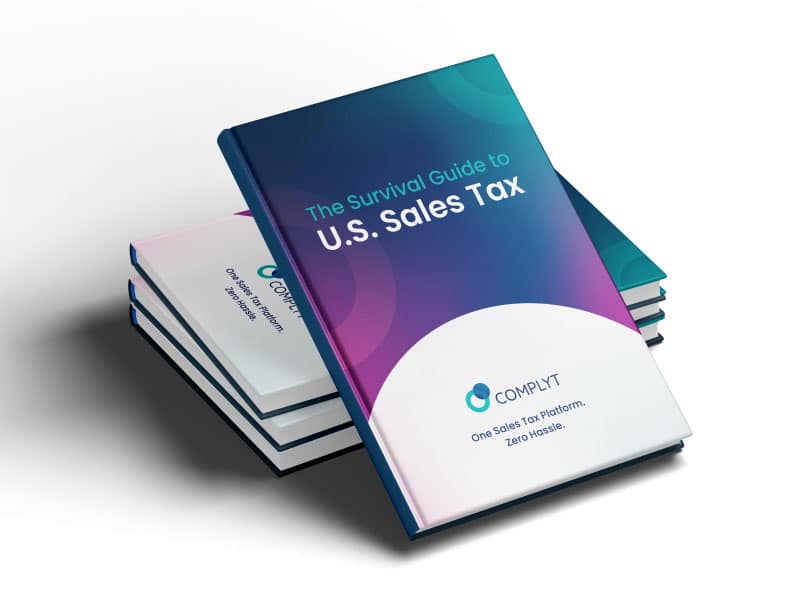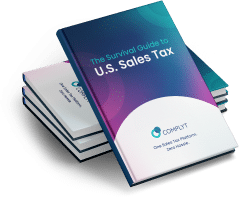What is the sales tax rate in Alaska?
Alaska is one of the few states that does not have a state-level sales tax. However, local jurisdictions like cities and boroughs can impose their sales taxes. The rates vary between 0% and 7.5%, depending on the jurisdiction. For businesses operating in multiple areas, it’s essential to understand the specific sales tax rates that apply to each location.
Sales Tax Alaska: So when should my business start collecting Sales Tax in Alaska?
As soon as you’ve triggered a nexus (that’s a physical nexus or economic nexus), within a state that does require the collection and remittance of sales tax. So when you’re moving in Alaskan business waters, it’s essential to know whether your business operates within one of these localities and to regularly check for any changes in local tax rates.
What are Alaska’s Physical sales tax nexus rules?
Now while it may sound like jargon from a classic sci-fi movie, in the realm of sales tax, “nexus” simply refers to the connection or relationship a business has with a state that requires the business to collect and remit sales tax within that state.
In Alaska, while there isn’t a statewide sales tax, individual boroughs and municipalities have the power to levy sales tax. Therefore, understanding nexus in Alaska is a matter of local concern.
A physical nexus is typically established in the following ways:
Storefronts or Offices: If your business operates a physical store, office, or other establishment in a jurisdiction of Alaska that has sales tax, then you have a physical nexus.
Employees or Representatives: Having employees, agents, or representatives operating in a taxing jurisdiction establishes a nexus. This is an important consideration for companies with remote employees.
Warehouses or Inventory: If you store goods in a warehouse within a sales-tax-collecting jurisdiction, even temporarily, you may have a nexus.
Affiliates: Engaging with a partner or affiliate based in a local taxing jurisdiction could create a nexus.
It’s crucial for businesses to stay updated on local regulations, as these can change and impact whether you have a nexus in that area.
What are Alaska’s Economic nexus thresholds?
The economic nexus threshold in Alaska is $100,000 or 200 transactions.
“Economic Nexus” refers to the financial connection a business might have with a state or jurisdiction, regardless of its physical presence. While many states have implemented economic nexus laws after the South Dakota v. Wayfair Supreme Court decision, Alaska’s lack of a state-level sales tax complicates this.
However, as local jurisdictions in Alaska have the authority to implement their sales tax regulations, some may adopt economic nexus thresholds. These thresholds might be based on revenue from sales into the jurisdiction, the number of transactions, or a combination of both. So it’s imperative for businesses selling goods or services in Alaska to review each jurisdiction’s criteria.
Which services are taxable in Alaska?
In jurisdictions that impose sales tax, several services might be subject to sales tax in Alaska. Typically, taxable services include:
Professional Services: Depending on the jurisdiction, certain professional services like consulting, legal, or accounting might be taxable.
Personal Services: Services such as beauty treatments, fitness training, or personal coaching might fall under the sales tax net.
Entertainment Services: Events or shows could be subject to sales tax.
Digital Services: Streaming, downloads, or online memberships might be taxable based on local regulations.
Again, it’s critical to consult the local tax codes or work with a tax advisor familiar with Alaska’s unique tax landscape to ensure compliance, especially with a sales tax landscape as nuanced and subjective as Alaska’s.
How do I calculate what sales tax my business should be charging in Alaska?
Even though Alaska doesn’t have a state-level sales tax, it’s important to stay up to date with its local jurisdiction’s varying rates.
So when calculating Alaska sales tax, you need to follow these steps:
Identify the Taxing Jurisdiction: Determine the specific borough or municipality where the transaction occurs.
Find the Current Rate: Refer to the local tax authority’s publications or website for the current rate.
Apply the Rate: Multiply the total taxable amount by the sales tax rate of the jurisdiction.
Consider Exemptions: Some products or customers might be exempt. Ensure you have up-to-date records of any exemptions to apply them correctly.
So while a $100 product may come with a sales tax surchurch of $3 in Sterling due to its 3% sales tax rate, the same product would only attract a sales tax surcharge of $6 in Bethel, where the sales tax rate is 6%.
How does Alaska clothing tax work?
Because there is no statewide sales tax in Alaska, retail stores and eCommerce sellers have to calculate clothing sales tax based on each county’s sales tax rates.
Are there any sales tax holidays that exempt Alaska clothing tax?
While there are no statewide sales tax holidays in Alaska due to the state’s home rule jurisdictions, there are multiple counties that do participate in sales tax exemption periods.
For instance, the Municipality of Skagway offers a retail sales tax holiday twice a year that exempts sales tax on all tangible goods, including clothing, that are sold for any purpose other than resales.
How does Alaska approach online sales tax?
When it comes to online sales tax and SaaS sales tax, Alaska is a state companies need to tread carefully in.
SaaS and other digital products are taxed solely on home rule jurisdiction basis in Alaska. Because there is no state sales tax rate in Alaska, navigating Alaska online sales tax is a tricky affair that requires businesses to stay up to date with each county, city, and municipality’s approach to online sales tax and verify local sales tax codes on each sale.
SaaS Sales Tax Alaska: Does my Business Need to Charge Sales Tax for SaaS in Alaska?
The short answer is yes. SaaS is seen as a sale of property and the provision of service in most Alaskan jurisdictions, and as such Alaska SaaS sales tax does come into play, generally applied at the general sales tax rate.
How can a business obtain a sales tax permit in Alaska?
If your business operates within a jurisdiction that imposes a sales tax, you’ll need to apply for a sales tax permit. Here’s how you’ll do it.
Businesses that have established a physical nexus within an Alaska jurisdiction need to apply for a sales tax permit directly with the Alaska Department of Revenue’s Tax Division.
Remote sellers, such as eCommerce businesses, that have established an economic nexus must register for a sales tax permit online through the Alaska Remote Sellers Sales Tax Commission (ARSSTC) portal.
The portal connects to all local jurisdictions and registration is entirely free.
Is collecting sales tax in Alaska more difficult than in other states?
No, staying compliant in Alaska is no more difficult than in other states, but neither is it less difficult. It requires dedicated nexus monitoring, accurate sales tax collection, and on time remittance in every jurisdiction where you have a nexus. Which is essentially what sales tax in any state boils down to.
Collecting Sales Tax in Alaska as a Business
Once you’ve determined that you have a nexus in a sales-tax-collecting jurisdiction in Alaska and have calculated the amount:
Setup Sales Tax Collection at Point of Sale: Ensure your POS system, online checkout, or invoicing system captures the correct sales tax.
Maintain Detailed Records: Track all transactions, collected taxes, and exemptions.
Stay Updated on Rate Changes: Regularly check for updates on sales tax rates within the jurisdictions you operate.
File & Remit on Time: Each jurisdiction will have its due dates and filing procedures. Ensure timely filing and payment to avoid penalties.
Now to get these steps right easily, it pays to work with a local tax expert or utilize specialized sales tax software can significantly ease the complexity of collecting and remitting sales tax in Alaska.
Alaska Tax Return Due Dates Explained
Each local jurisdiction may have different due dates, so be sure to consult local tax codes or the local finance department.
What is the required frequency for sales tax returns in Alaska?
Frequency varies by jurisdiction and could be monthly, quarterly, or annually. Always refer to the specific locality’s guidelines.

